Being Gay in Yucatan
When we moved to Merida, some of our first close friends here were members of a growing number of expats who identified themselves as part of the LGBT community. The Maya culture has always apparently seen gender as more of a spectrum than a black-and-white affair, and as far as we could tell, the local Yucatecan culture did not seem to particularly notice or care if an expat was gay or straight. There seemed to be a few transgender Yucatecans in the neighborhood of Ermita, according to one of our friends, and they were totally accepted by their families and by the community.
Since that day, the gay community seems to have slowly, and then increasingly, discovered that there is a certain freedom living in Merida and being gay… not to mention all these great houses and renovation opportunities. As the news has spread, the community has grown.
In this article, we are going to take a look at the history of the gay community here in Yucatan. And then ask some of our friends and acquaintances to give us their first hand experiences of being gay in Merida.
The History of LGBT in Mexico and Yucatan
Pete Sigal, an associate professor of history at Cal State LA, wrote a paper called “Gender, Male Homosexuality and Power in Colonial Yucatan” (linked at the end of this article). From this paper, we basically learned that male and female homosexuality was deemed a sin by the Spanish conquerors, and that accusations of or rituals involving homosexual acts were used as shows of power over the conquered. Despite the conquerors mentality, the Maya culture is known for being accepting of sexual diversity, as noted in this Wikipedia article about the LGBT community in Mexico. There is even a Maya god, pictured to the right, named Xochipilli, who was called the Flower Prince, and is the Maya patron saint of homosexuals and male prostitutes… despite the fact that he was married to a human female named Mayahuel.
From Wikipedia, you can also get a broader picture of homosexuality in all of Mexico. And it is there that we found information about a formative event in the history of the LGBT community and Yucatan, the Dance of the 41 Maricones.
In 1901, despite the fact that sexual acts between consenting adults were officially legal now (thanks to the Napoleonic Code and the banishment of the Spaniards), other more general laws were used to arrest 42 men, half of them dressed as women, who were attending a ball in Mexico City. The scandal was well reported, and documented by a series of prints by Jose Posada that were widely circulated (see banner at the top of the page). But if 42 people were arrested, why is it called The Dance of the 41 Maricones? We wondered that too! It turns out that the 42nd person arrested was the nephew of the sitting president of Mexico, Porfirio Diaz. That nephew, despite his involvement, was allowed to go free apparently, and only 41 arrests showed up on the books. As part of their punishment, after being made to sweep the streets of D.F. dressed as women, the arrested men were sent to Yucatan, where the Caste War was still going on. Well, apparently only half of the 41 men made it to Yucatan, that godforsaken place that we call home. It may be that this is the modern beginning of Merida and the Yucatan as a haven for the gay community.
Wikipedia notes that less than a year later, there was also a raid on a lesbian bar. But soon thereafter, events leading up to the Revolución hijacked the national attention and these scandals fell by the wayside.
In the 1930′s, when Mexico City was growing in international popularity, there were gay bars and baths in various sections of the city. Even during this time of incredible growth and open-mindedness… “Those involved in homosexual activity continued to live with their families. There were no homophile publications or organizations, so homosexual activity was practiced clandestinely or privately.” During World War II, there were about 15 or so gay bars in Mexico City, two of which allowed dancing. But after a grisly murder in 1959, the mayor of Mexico City closed down every gay bar in town.
Same Sex Marriage Progress
As a predominantly Catholic country, Mexico’s acceptance of the gay community has been slow in coming, but it seems to be gaining traction in the last few years. In today’s Mexico City, same-sex marriage is not only legal (it was legalized officially in 2009), but a marriage in D.F. must, by law, be recognized in all 31 Mexican states. In Yucatan, same sex marriages were explicitly deemed illegal in 2009, but this law has been continually challenged since then. In 2013, a male same-sex couple requested permission to marry in Yucatan, and eventually it was found that they did have the right to marry. In 2014, the first lesbian marriage took place in Yucatan. Despite a few same-sex marriages happening in civil courts, this issue is still an ongoing battle in the state of Yucatan. Similarly, in Quintana Roo, some officials began conducting same-sex marriages in 2011. A lesbian couple tried to wed in Tulum in 2013, and after being denied, then having the denial retracted, the couple was wed in August 2014. A bill to legalize same-sex marriage explicitly is apparently due to be voted on in Quintana Roo this year. In Campeche, a lesbian couple applied for a marriage license in 2014, and after various legal machinations, were married in August of that year. Recently, the PRD announced that there are various same-sex marriages pending in Campeche and the laws are being reviewed.
A study conducted by Vanderbilt University in 2010 reported that 37.8% of Mexicans support same-sex marriage. A different poll conducted in July 2013 found a significant increase in support for same-sex marriage, with 52% of Mexicans in favor of legalizing same-sex marriage. We even heard from a Yucateco friend who lives in an ex-hacienda that in last week’s elections, his small village elected an openly gay man to be their next mayor. Our friend gave us the impression that this man’s gay status gave him an advantage in the election.
So, today things are changing rapidly. Mexico itself is dealing with the gay agenda. Today expatriates from around the world are settling in Merida, and throughout the Yucatan Peninsula. A certain percentage of that expat community self-identifies as members of the LGBT community, so we asked some of the ones who have lived here for awhile to tell us their impressions of being gay in the Yucatan.
The following are their replies:
Mitch Keenan, of Mexico International Real Estate, 20 years in Yucatan:
I’ve been so “out of the loop” with gay life in Merida that I honestly don’t know what’s happening. I haven’t been to a gay bar, parade or political event in years. It’s not that I wouldn’t like to go or be more involved, but my work is more than a full time job and living in the jungle effectively distances me from a lot of what goes on in Merida and with the gay community.
I went to a party the other night that was kinda “gay”. There were a lot of gay men there. But, now that I think about it, there were quite a few straights as well.
Honestly, one of the aspects I most enjoy about the Merida expat community is that it is nothing special to be gay. It just seems like the norm. Or maybe not the norm but it’s just a non-issue.
One of the things I hated about the gay community in the USA, is that it was so GAY! In your face GAY. Way over the top gay. The press had a field day with the gay parades… all the fairies, effeminate men dressed like women and butch women dressed and acting like men. Honestly, it depressed and disappointed me.
I worked as one of the co-chair persons for an organization called “NO on 2″ in Denver. We formed after the voters of Colorado passed a ballot initiative that was basically prejudicial to GLBT persons (See http://en.wikipedia.org/wiki/Romer_v._Evans). The purpose of our organization was to raise funds and public awareness so that we could overturn the bill. We were successful, but it was a very public battle and we received a lot of hate mail, death threats, bomb threats, etc. As co-chair, I especially received a lot of attention.
I didn’t mind so much the negative, mean and evil commentary coming at me from the Christian Right, but I also got a lot of flak from the “gay” community in Denver and Colorado. I was expected to march in the gay pride parade in Denver. I refused to do so because I believed the parade did more harm than good to “gays” in the general public’s view and did not induce sympathy towards the LGBT plight. I ended up with as many battles with the people I was fighting to protect as the people who we were fighting against.
Anyway, we won the battle in Colorado. Unfortunately, the entire thing left me with a bad taste for gay politics and many aspects of the gay community, which to this day I find discomforting.
In the beginning, back in the 90′s, I chose Merida because not only was it gay-friendly, but my partner and I were able to conduct our business as a gay couple and it wasn’t an issue with most Meridanos. At least not to our faces and, I don’t believe, behind our backs either.
I like being able to be myself in Merida and it is a non-issue. It’s like being normal or something like that…
Canadian Male, 69 years old, 11 years in Yucatan :
Living in Canada for fifty-eight years, I had never heard of Merida, although I had been in Mexico on three previous trips to Cancun and Puerta Vallarta. Being married for thirty-two of those years, I had never had occasion to explore the presence of a gay community or even a chat line. Coming out and ending my marriage, I met another Canadian who had been teaching in the Yucatan. He suggested I accompany him on a trip to Merida in 2004. While briefly living here, he had become aware of a gay community and had had a brief relationship with a younger Mexican architect. Online from Canada, we met another gay couple from the US who befriended us when we finally arrived here in November 2004. Through them, we were introduced to other gay men, both foreign and Mexican.
Living at the beach, we found ourselves amongst other foreigners, who for the most part accepted us as a gay couple. The majority of them were heterosexual couples. There were opportunities for meeting gay Mexicans online, some of whom we met those first few years here. Most were closeted. Amongst them were doctors, lawyers, architects, teachers, musicians, artists, etc. We also became aware of a large number of younger, closeted Yucatecan gays. Very few were openly gay.
In Canada we had both been in long term heterosexual relationships. There was no real gay community outside Toronto, Montreal and Vancouver. I had been from a blue collar town. Encounters with other gay men were casual. Most of the men on the chat lines, such as Gay.Com, were older. Younger men were less disposed to ‘out’ themselves publicly on such sites in the late 90’s.
In Merida, we have seen considerable numbers of middle-aged gay foreigners who have entered into relationships with younger gay men, most of whom are closeted to their families. Younger gay Yucatecans appear to be oblivious to the foreigners’ ages. Of course, there are some to whom the moneyed foreigners are an attraction for obvious reasons. The majority of gay Yucatecans online are between the ages of 18 and 35. There are fewer above the ages of fifty.
Yucatecans appear to have no real concerns with gay foreigners unless they become involved with their own sons. We have experienced no significant discrimination here in over ten years and we have traveled through twenty-seven states! Perhaps it helps that we are more mature gay men and are not really involved in the gay community, nor do we frequent gay bars or participate in Gay Pride events.
The numbers of gay expats have increased over the years since we moved here, as have the numbers of young, gay Yucatecan men. Gay foreigners are investing heavily in Merida’s centro, remodeling homes and starting up businesses. There still seems to be no strong gay community. Gay expats integrate fairly easily into the culture and society.
Gay rights are slowly evolving since the first gay marriage here, although in other parts of Mexico the laws are changing more quickly. As a gay couple we have IMSS, the national health insurance. Immigration accepts us as a couple, although we were not allowed to name each other as our spouses, even though we are legally married in Canada. We are openly gay whenever we require health-related treatments at Star Medica or Clinica Merida. Our doctors are aware that we are a gay couple. We own no property here, so we can’t speak to that.
Yucatecans are generally warm and loving people in public. PDA (public displays of affection) are acceptable between men and women, men and men, women and women, but only to a certain degree. As gay men, we rarely hold hands in public or kiss even briefly, nor do we dress flamboyantly. That perhaps is a small reason why we experience no discrimination.
We cannot speak of the Lesbian community, although we have a very small number of expat Lesbian friends who are coupled. Likewise our knowledge of the transgender community is nil at this time.
American Male, 86 years old, 30 years in Merida:
I first heard of Mérida from a gay friend in about 1965 when I was living in Key West. He mentioned gatherings of young men in a place called Merida. I heard nothing more about Mérida until cheap flights from Miami were offered. A few years later, the chairman of the company where I worked wanted to go to Merida. As an employee, I thought it was a good chance to schmooze with the chairman, who was also gay. When we got to Merida, we met a young gay man who worked for Americans in Merida. He and a student had a small apartment near Santiago. It seemed to be a meeting place for their group of young educated gay men.
I ended up renting their maid’s quarters for a writing studio and came to Merida from time to time for two week stints to write. After I resigned from my job, I came to Merida more frequently. Mainly I kept to myself, but when I wanted company, the two young men from whom I rented the room graciously included me. As far as I know, at the time there was only one rather sleazy gay bar down near the market. I went only once. The Kabuki and other discos had not yet arrived. Friends mostly gathered in the Main Square. The atmosphere seemed quite open and accepting. There were also streets near centro where prostitutes sold themselves. I had been told that Calle 60 and 62 were for men of particular interests, one street was for passive men and the other for active. I assume that this was the sixties or seventies, although it may have been going on when I was here earlier and I just didn’t notice. We bought our house on a whim in about 1985. It was the spacious garden that attracted us most. We had no idea that we were around the corner from a number of other US citizens, in the center of what became known as Gringo Gulch.
How have things changed since then? It is difficult to separate the dramatic change in the entire community from my impressions regarding the gay community. I rode a bike back then. Overall, there were fewer cars and they were mostly rattletraps. A party was a bottle of brandy, a bottle of rum and tostados. I am pretty sure meeting people in public places is more dangerous today, as it wasn’t then. My Yucateco friends tell me that the bad guys are from outside, not from Yucatan. I am sure the internet has had a powerful influence. I did not know of openly gay guesthouses when I first started coming here. The openly gay guesthouses that advertise on the internet have brought men looking for “boys”. Several discos opened, but I don’t know what is happening with discos now. Younger gay men seeking to make a living, primarily in real estate, have moved to Merida. They have encouraged a gay clientele. As I saw in Key West, gay men have had a significant influence in rejuvenating real estate in Merida’s centro and also at the beach.
An older women friend who lived on Calle 53 near where the English Library was founded said to me that she had never known a gay person before she came to Mérida. She may not have been inclined to hang out with gays before coming here, but she said she would have been hard put to find a Bridge partner if she hadn’t been gay-accepting. Before the Merida English Library was created, there was a book shelf where we could exchange books in English on an honor system, and there were monthly gatherings at the offices of the American Consulate. During that time, I was at a restaurant and, thinking I recognized a white haired couple at the next table, I went over and said hello. The minute I said that, I saw that clearly I had made a mistake. I backpedaled, by saying perhaps we had seen each other at the American Consulate’s First Friday parties. The husband retorted that they had gone only once and found that there were only a bunch of drunks and queers. Oops!
How do I compare Mérida with Key West? In many ways they seem similar. I believe the indigenous population is amenable to the eccentricities of the expatriate. I think that the “newcomers” are having a dramatic impact on the central part of the city, as they did in the restoration of the historic district of Key West, and as they did in the part of Brooklyn when my partner and I lived before moving to Key West. The Latin, as compared with the Protestant culture, is much more malleable. It is my impression that older men are found more attractive in the Yucatan than they are in the United States. There seems to be in general a greater respect for abuelos (grandfathers).
How do Mexican men vs Maya men treat gay men? I suspect Maya men are less threatened and more accepting of gay experiences than other Mexican men. There are many openly gay and transsexual men in places such as Tixcocob and Motul. A gay school teacher with a Maya family name assured me that the Maya of Yucatan are much more accepting of gays that in other parts of Mexico.
Are gay women treated differently? I don’t know. The lesbian women I know seem quite comfortable here, but I don’t know the lesbian community. My Meridano informant tells me, however, that there is a lesbian community. Transgender? Again, I don’t know. I am told that there are gatherings of transgender/cross dresser folks, but I have no personal experience.
We didn’t move here to get away from discrimination, but we feel as comfortable here as we did in New York or Key West. If we still lived in a small town in the USA, as we once did, the answer would be different.
Is there a distinct gay community? I’m not sure. The gay folks I know, Méridano or expatriate, are part of an open and accepting community, not an exclusive community. I personally have found exclusively gay gatherings boring. The expatriate community when I first moved here was rather unified. Now, with the influx of more and wealthier expatriates, the community has broken into clusters. I am told that there are gay clusters in the northern part of the city, and I have heard of a private club somewhere in the north, but I have no personal knowledge of them.
One time a man who lives in our block was drunk and shouted invectives at me. Neighbors came out and tried to shush him and apologized to me. That was the only time I have seen or experienced any negative treatment. About twenty years ago, a very obvious and obnoxious man lived in the area where a number of expatriates, gay and straight, were concentrated. He owned a big sports car. Young men were seen hanging around the place. He tried to open a bar near Santa Lucia under a friend’s name. One afternoon the police came and escorted him to the airport, telling him not to return. There is another incident in which men involved with the music community were accused in the newspaper of being pederasts. Some of it may be true and some of it was probably political. These are the only incidents that I can recall in the many years that I have been coming to and living in Merida.
My partner of forty-six years and I were recently married in Santa Fe, New Mexico. We were encouraged to pursue the option of marriage here, but were told we would have to sue. Of course things are changing almost as fast in Mexico as in the US, I suspect because of Mexico’s tradition of separation of church and state. We know of three gay priests. One is a close friend and although we are not Catholic, we plan to have a consecration event here sometime soon.
I asked an older American what attracted him to Mérida and his response was, “the boys, of course.” I don’t think he meant underage and yet I am offended by that thought. The open and accepting nature of the community, the excellent symphony, the museums, the Maya culture—I could go on and on—are far more important.
American Female, 64 years, 10 years in Merida:
When we moved in early 2005, we seemed to be the only lesbians in town. Of course, that was not true, but we didn’t meet others for awhile. We met lots of gay men and many straight men and women. And no one seemed to care or make an issue of sexual orientation — expat or Mexican or Mayan. There was very much a “live and let live” attitude in Merida that still exists.
We had not been discriminated against as lesbians (but don’t get me started on gender inequality!) in the U.S. But we were disgusted by the second election of George Bush and decided it was time for a new country and experience. We were not discriminated against in Merida that I could tell. As women, we often had the good fortune to be assisted by a gallant stranger who, for example, helped carry something heavy for us.
I would not say there is a visible lesbian community but we are just part of the expat mix. Once we met people and made friends, we were included as people not as lesbians. That applies to being part of expat or part of Mexican communities in Merida in my experience. An adorable gay man might be a flavor of the month and asked by everyone everywhere, while this would not happen for a woman, any woman, until she was familiar and had made friends. And making friends is not hard to do.
When we purchased a home, did construction, or opened a bank account together, we had no issues of discrimination.
The expats in Merida love “new blood” to perk up things socially. There are people and groups for everyone to fit into or to be friendly with. There have been gay bars that seem to move and change over time. They are not the basis for the gay social scene however, because there is not a gay social scene or not an exclusively gay social scene that I am aware of. There is an expat social scene that can include everyone of every variety.
It seemed to us that at first, the expat community was primarily gay – gay men, to be exact – but it has evolved to be more heterosexual couples and recently more young working people rather than retired gay ones. But it’s a mix. And honestly, we do not think it has ever mattered what your sexuality is or where you come from or how much money you have, as long as you are nice.
American female, 65 years old, 8 years in Merida:
When we first heard about Merida, about 10 years ago, it was from a straight couple that we were friends with in Oakland, California, our home town. And it was not in the context of the “gay” community. We have lived in the S.F. Bay Area most of our lives; gay men, lesbians, bisexual and transgendered people have lived together with the straight community in a very special way there. We had no expectation that there would be a lesbian community in Merida.
Once we came for our first visit, we got it that Merida was a huge community for gay men both Mexican and extranjero. This meant nothing to me as a lesbian.
I am a woman first, so my initial concerns have always been about my safety as a woman. I feel as if our interactions with people here in Merida have more to do with how we treat people in general, and little to do with my lesbianism. That said, I know that people are informed by their culture, and this culture by and large does not value my relationship or other LGBT peoples relationships in general. There seems to be an implicit “don’t ask don’t tell” mentality, which is nice because it is not outwardly hostile, but it is still not embracing me or my lifestyle.
The change we have experienced has come from making strong, loving relationships with Mexican lesbians. We are the adoptive grandma’s of a young child here who has two moms and that relationship has opened doors for us into a more intimate opportunity to experience family etc. In general, lesbians here are discriminated against pretty much the same as anywhere else in the world. I feel this is mostly because women are discriminated against in general, not necessarily because we are lesbians.
We come from a very special place in the Bay Area, and we had no expectation that that would be duplicated here. As at home in California, we have friends who are gay, straight, bi, asexual and almost every other possibility except transgendered. I don’t think I could live anywhere that LGBT people were not obvious and out in general.
Yes, we are treated differently, because men in general are treated differently than women. I experience my Mexican lesbian friends and acquaintances as very strong, capable, fun-loving women. I think they are very successful in the worlds they live in, but I also know that in general they are not “out” to their greater community.
In the expatriate community that I know of, there are three lesbian couples. As far as I know, we are all visible to the extranjero community as lesbians. I have no idea about the Mexican lesbian community. We have our friends, our “family”, but I cannot speak to the greater Mexican lesbian community here in Merida.
I moved here because my partner and I wanted an adventure in our life, we wanted to live in another culture, learn the language, experience the likenesses and differences, and challenge our belief system. We have done all of that and are very happy for it.
I know there is a bar scene, I know there is the park scene, I know there is the same “pick-up” scene that exists in every large city in the world, but most of that involves gay men. As far as the lesbian community, I don’t know what young lesbians are doing to meet each other; there is no distinct place that I know of. I think here it is much like it is in the U.S. Young lesbians go to bars to meet, they have parties, they find ways to socialize. But as far as I know there is no lesbian ‘community”.
I have felt the same discrimination here being a lesbian as I have felt anywhere else in the world. I do not feel free to be physical with my partner in public, and I often feel dismissed by men. But truly I believe that is the same sexism I have experienced my whole life. Men really don’t like to take direction from women, they don’t particularly appreciate our insights into problem solving. This may be exacerbated by my being a lesbian as well, but I think just being a woman is problem enough.
In terms of legalities, we have not had a problem buying, selling property and having things put in joint trust. I really have not gotten very involved in any general way with a gay rights movement here. I feel the veneer of acceptance here is easier than open hostility, but I do not feel the culture in general is ready to accept sweeping change like “gay marriage”. I know it exists in D.F. and I am very proud that that is a reality here in Mexico. However, there are so many ways that LGBT people are discriminated against in general and that Mexican people are kept from expressing their true potential, that it is very difficult to point to specific LGBT issues as more discriminatory than all the issues that need to be faced here.
I am a 65 year old woman who has faced all the discrimination that all women are challenged to overcome. Being a lesbian whether here or in the states is just another wrinkle in that challenge. I have not found it any harder here, I have not found it any easier. We as women have a long way to go before there is even a hint of equality. I believe lesbians can be great leaders in that march to equality, and my experience of Mexican lesbians only reinforces that sense of strength and possibility.
One last comment from an expat friend originally from New York:
It was a non-issue the day I moved here 14 years ago, and it has remained a non-issue to this day.
****
This article was written to give anyone who does not live in Merida some information about the history and current state of affairs of being gay in Merida and the Yucatan.
Obviously, this is a limited view, as any view would be. The issues surrounding being gay, same-sex marriage and equal rights are many, and not what we are addressing here on Yucatan Living. The contributors to this article are all established members of the Merida expatriate community, known and respected by both expatriates and Yucatecans. It is our wish that any foreigner moving to Merida and the Yucatan Peninsula would conduct themselves with respect for their host country and the expatriate community, while enjoying the same freedom of expression that we all enjoy living here.
We invite your respectful comments or questions.
****
Gender, Male Homosexuality and Power in Colonial Yucatan, Pete Sigal
Despite the spelling and other mistakes, we were happy to see that Casa Sisal was included in this list: 17 of The Most Beautiful LGBT Friendly Wedding Venues.




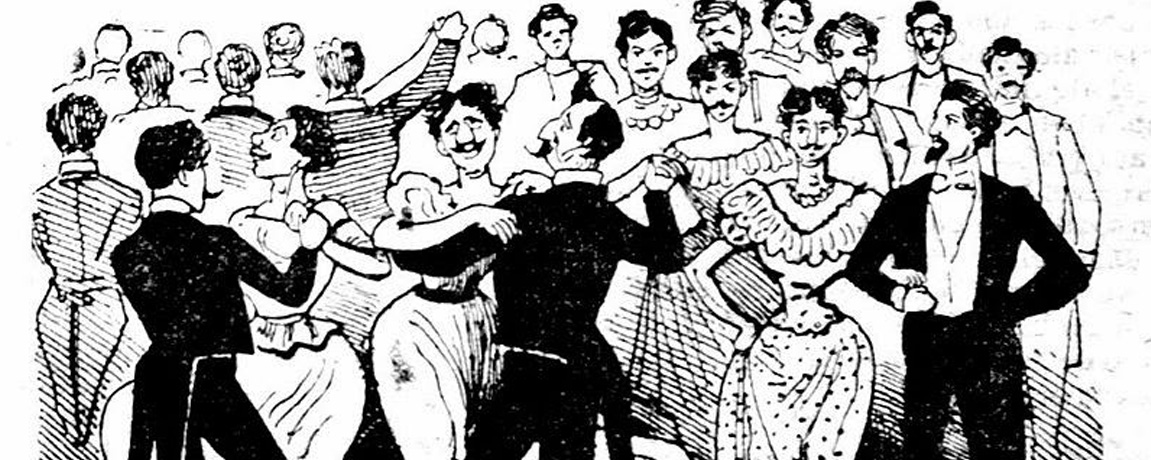


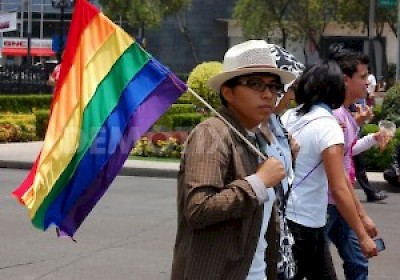
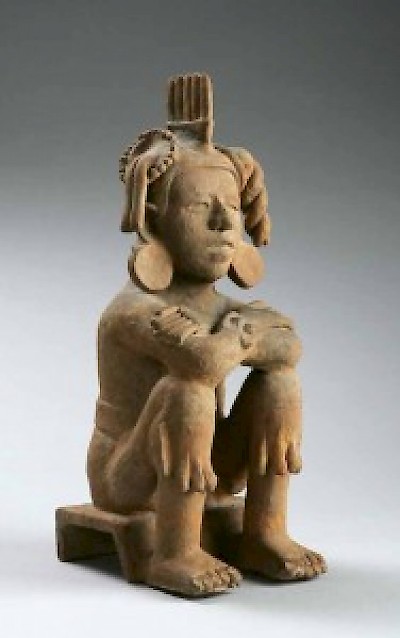
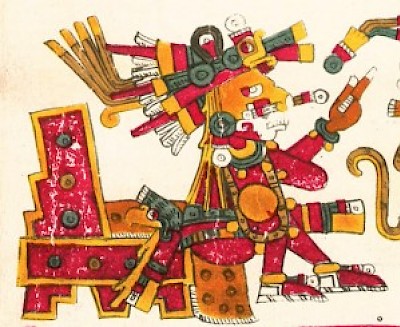

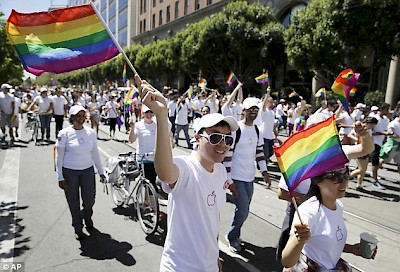
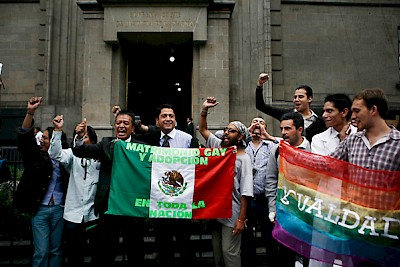
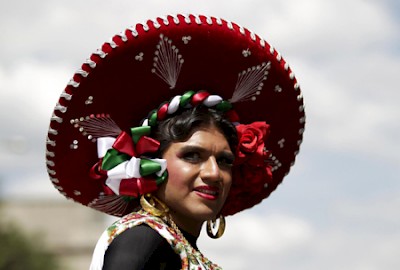

Comments
Michael King 9 years ago
Hi. I'm "armchair traveling" from a cabin in the north Georgia mountains in the US. I really have enjoyed reading your site and the personal essays of your friends & acquaintances in Merida. Very insightful! Hope to visit Merida this year.
Reply
M.IM 9 years ago
HI I`m a foreign student starting to do a research on LGBT movements in Yucatan. I studied Spanish in Merida for a year and after coming back to my country decided to study about this theme, and happened to come across this article. Do you happen to know any LGBT community or organization that could help me out?
Thank you
M.I
Reply
Leia K 10 years ago
As usual, this article does not address my issues. I was looking for commentary about Transgender acceptance in Yucatan, hoping to learn about Valladolid especially.
In Canada the LGB community seem to ignore the T alot now that they are kinda mainstream. We still need help, we helped all of the others.
Any info would be good. Is Merida the only place to settle? I like what I see all over the peninsula. I would like to explore it all, but I don't want to be killed so I am somewhat nervous.
Thanks
Leia
Reply
Working Gringa 10 years ago
Leia, Merida is definitely the more sophisticated city in the Yucatan. And the Maya are very accepting of everyone on the sexual spectrum, in our experience. I would suggest that you visit and see for yourself, of course, but I cannot imagine that you would not be safe anywhere in Yucatan.
Reply
(0 to 4 comments)